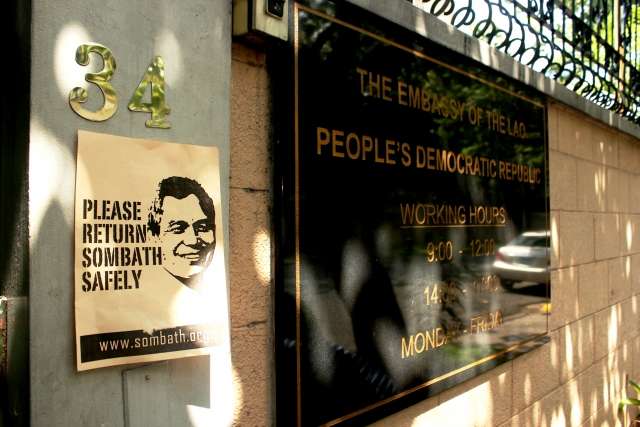Bangkok, 21 July 2016 – Dr. Walden Bello, a former member of the Philippine Congress who sponsored the House of Representatives resolution renaming the South China Sea the West Philippine Sea, led a discussion on the recent Hague tribunal judgment on conflicting claims in the South China Sea this morning at Chulalongkorn University. He expressed the need for a two-pronged approach involving both military de-escalation and multilateral agreements.
He described the ruling as a “flawed victory,” saying that “the Hague verdict is not an undiluted victory for the Philippines, and at least in the short term, it will not unlock the door to peace in the region.”
Bello said that the Duterte administration has been rightfully circumspect with regards to the Hague ruling. Although the ruling sets an important precedent for resolving maritime territorial conflicts, a propaganda war between superpowers may overshadow the Philippines legal ascendency.
The Dynamics of Superpower Competition
The increasingly competitive rivalry between the US and China provides a background for the Philippines’ territorial disputes in the South China Sea.
China has taken to using unilateral moves to secure what it sees as a defensive perimeter instead of cooperating with other countries in region to reach multilateral agreements, reminiscent of US foreign policy.
In 2014, the Philippines signed the Enhanced Defense Cooperation Agreement (EDCA) with the US in an attempt to secure territorial claims when in fact, it increases US military access to East Asia, confounding efforts to peacefully acquire territory through the legal authority of the Hague Tribunal.
“Persevering in the legal-diplomatic route was the only viable way to go, but having deviated from this by entering into a military alliance with a state determined to contain it, the moral force and diplomatic credibility we should have gained from our legal victory in the Hague have been compromised”, Bello said.
Moving forward
According to Bello, the Hague tribunal judgment should be seen as a stepping-stone to further the dialogue between China and its neighbors.
He advised bilateral talks between China and the Philippines aimed at de-escalation of military tensions. As an example of a constructive exchange, he said China could stop building military bases in the South China Sea while the Philippines froze implementation of EDCA. The process would build on previous ASEAN peace initiatives like the treaty making ASEAN a Zone of Peace, Freedom, and Neutrality (ZOPFAN) and the agreement establishing the Southeast Asian Nuclear-Weapons-Free Zone (SEANWFZ).
The bilateral talks should focus solely on military de-escalation, not resolving the territorial conflicts. ASEAN and China should schedule multilateral talks on the issue of a Code of Conduct to govern the maritime behavior of all parties with claims in the South China Sea. Should these confidence-building measures prove successful, then ASEAN and China could begin to multilateral negotiations on exclusive economic zones, continental shelves, and other sovereignty issues.
Bello spoke optimistically of an East Asia-wide collective security agreement that can move the region beyond the dangerous balance of power mechanism that is triggering an arms race.
Video recordings of Bello’s presentation can be found on the Focus on the Global South Facebook page. Please also see Bello’s opinion piece, “A Flawed Strategy and How to Rectify it: Aquino, Duterte and the West Philippine Sea”, published on InterAksyon.com on 19 July 2016.
Contact: Shalmali Guttal, [email protected], +66 (0)2218 7363-65








